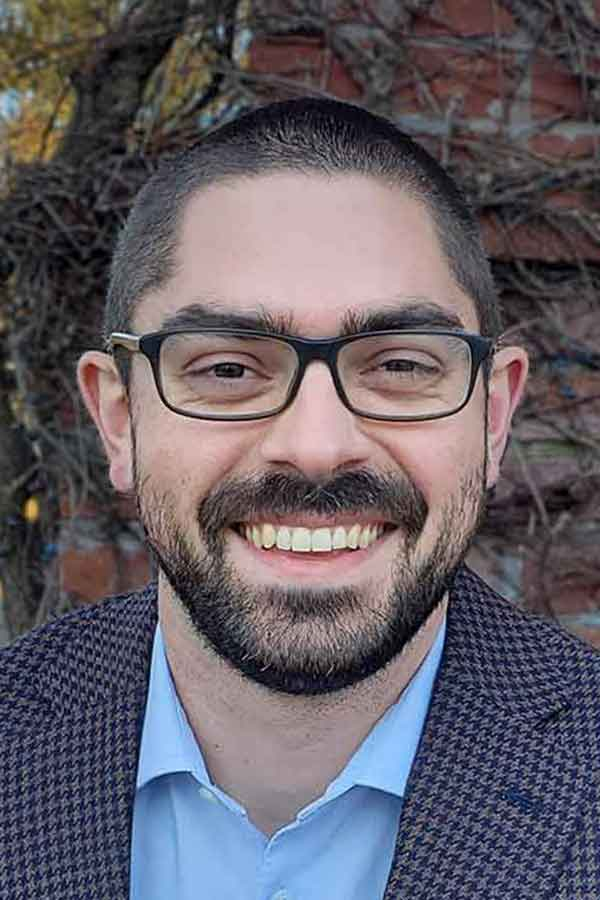Clarkson University Professor Awarded National Science Foundation CAREER Award for Research on Rapid-Setting Cement
Clarkson University Assistant Professor of Civil and Environmental Engineering Robert Thomas has been awarded a nearly $600,000 grant from the National Science Foundation’s (NSF) Faculty Early Career Development Program (CAREER) to support his research of the long-term durability properties of belitic calcium sulfoaluminate (BCSA) cement through the lens of its unique chemistry.

Rapid-setting BCSA cement reduces the impacts of construction on society and enables accelerated reconstruction in the face of infrastructure failures or natural disasters. Meanwhile, the lower carbon footprint of BCSA cement relative to traditional portland cement aligns with the United Nations Sustainable Development Goals, which aim to safeguard global health and prosperity now and into the future.
Portland cement was invented in 1824 and is still the basis for nearly all the concrete we make, Thomas explained. Its two weaknesses are its high carbon footprint and its relatively slow strength development. It can take up to 12 hours to harden and 28 days to reach its design strength.
BCSA cement has a lower carbon footprint, but more importantly, it sets and gains strength quickly. It can set it under an hour and reach structural strengths in four hours.
“That equates to less time waiting for construction,” Thomas said. “Think about completing bridge deck repairs in hours versus weeks.”
If a natural disaster or some other catastrophic structural failure were to occur, this property can facilitate rapid reconstruction, which helps keep interstates and shipping channels open, letting folks get to work and letting their goods get where they need to go.
“This is not a material we will use to build a bridge,” Thomas said. “It's a material we will use to fix that bridge quickly when it fails.”
The NSF CAREER Award will support research that sheds new light on how, when, and under what conditions rapid-setting BCSA cement systems develop their long-term durability properties, an area which has received little attention in the past.
The award will also support research-integrated educational initiatives focusing on personalized complementary learning through micro-credential courses and workforce development for design and construction professionals, enhancing the competitiveness of the US STEM workforce.
For more information about Thomas’s award, click here.
For more information about Clarkson’s Civil and Environmental Engineering Department, click here.
